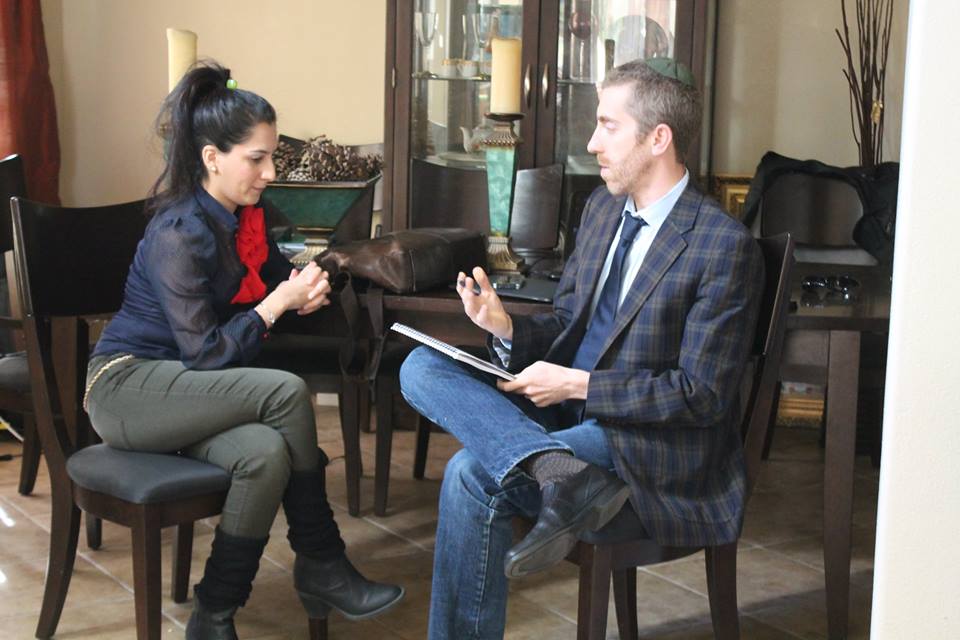Ema Shah is a superstar in Kuwait and the Arab world. Known for her singing and her musical style, which blends pop and classical influences, she is also a pioneer for women in the region, choosing to dress as she wishes–not just on stage but in everyday life as well. Lately, Shah–is trying to break a political taboo by reaching out to Jewish musicians–defying cultural hostility to Israel, hoping she can help cultivate peace.
The 34-year-old Shah’s interest in Hebrew dates to 2010, when she caused an international controversy by singing the familiar Jewish folk song, “Hava Nagila,” at a nightclub as part of a performance involving multiple languages.
The audience loved it, she told Breitbart News in an interview last week, but a few people were shocked, and alerted police. One woman shouted: “No normalization with Israel, this is Zionism,” Shah recalls.
The incident only made Shah–winner of Best Music Video at the New York Winter Film Awards in 2014–more determined to reach out to Israeli–and Jewish–singers and musicians, in the Middle East and the United States. She hopes that by doing so, she can break through the barriers of mistrust in the region, and undo hateful attitudes in the Muslim world in particular.
“We Arabs should work together with Jews,” she says. “We are family, and we are all human beings. We should love each other.”
Shah’s own ancestry crisscrosses the somewhat artificial boundaries of the Arab and Muslim world. Her parents are Iranian and Kuwaiti, with some ancestry in Afghanistan and Iraq. She burst onto the music scene with her performance at a Kuwaiti independence concert in 1996, and began exploring theater as well, acting in a local arts festival for several years under Kuwaiti director Abdulaziz Alhaddad.
Shah is currently working with Saudi director Mohammed Al Saber, who is seeking a producer for a new film he is directing about the Jews of the Arabian peninsula. The story follows the discovery by a young woman, to be played by Shah, who discovers that her grandfather, who lived and worked as a beekeeper in the Sarawat Mountains in western Saudi Arabia, was actually a Jew whose family emigrated from the country in the mid-20th century, as many Jews fled or were expelled from Arab lands at the time. The film’s message, Shah says, is about the shared cultural kinship of Jews and Arabs, and the tragedy of how Jews were expelled from Saudi Arabia.
While working with Alhaddad, Shah says, she also studied the works of the great contemporary American and European playwrights: Arthur Miller, Eugène Ionesco, Samuel Beckett, and others.
She had little interest in politics, she said, preferring anthropology as a philosophical framework for her art, which seeks to explore cross-cultural connections that transcend politics. (The irony of her Hebrew performance, she said, was that the same performance included selections of poetry by the Palestinian nationalist poet Mahmoud Darwish, along with lyrics sung in French, Japanese, Spanish, and English.)
The Palestinian cause was somewhat distant for Shah, growing up in Kuwait–a country where Palestinians had helped invading Iraqi forces in 1990, and from which hundreds of thousands of Palestinians had been expelled after the Gulf War without much notice being paid by the rest of the world. “I don’t care about the Palestinian issue,” she has said, a view evidently shared by many in the Arab and Muslim worlds but rarely aired in public.
What she does care about is human rights. And her sharpest criticism is often reserved for fellow “liberals” in the Arab world–human rights and democracy activists who reserve special hatred for Israel and Jews.
She also has criticism for her culture: “We should smile, love, be quiet, calm down. Arabs and Muslims are angry all the time.” She says that as a teenager she, too, shared hard-line views on Israel and Jews, until she learned more.
Shah has respect for religion, but believes that many in the Arab and Muslim world are “brainwashed”–even people in the arts community. One fellow musician, she says, supports ISIS, and told bandmates he hopes they will invade Kuwait and outlaw music.
Privately, she says, many Kuwaitis have different attitudes–though she cautions that the youth are less tolerant than their parents.
Singing in Hebrew is her plan to break through.
Senior Editor-at-Large Joel B. Pollak edits Breitbart California and is the author of the new ebook, Wacko Birds: The Fall (and Rise) of the Tea Party, available for Amazon Kindle.
Follow Joel on Twitter: @joelpollak

COMMENTS
Please let us know if you're having issues with commenting.